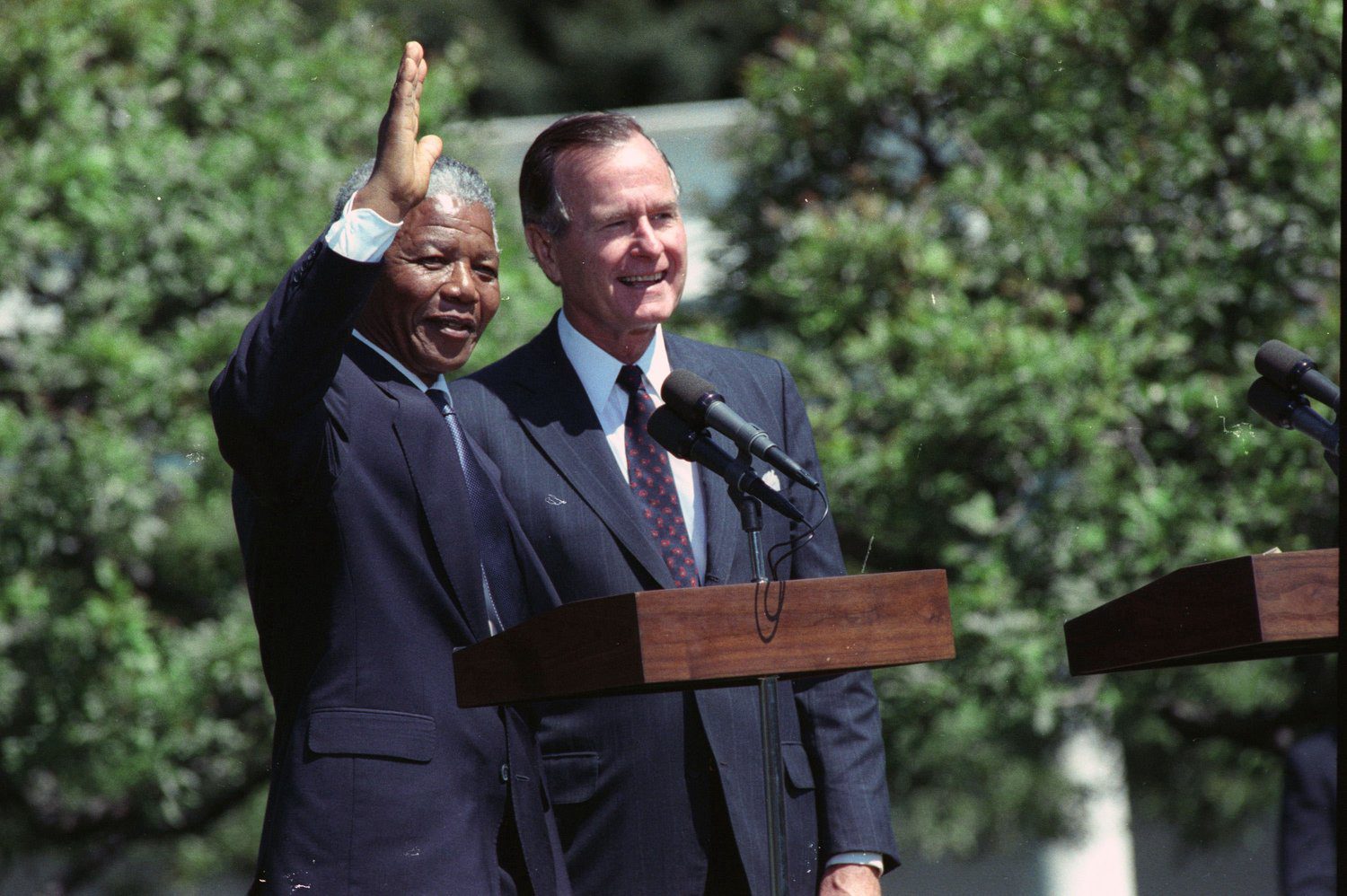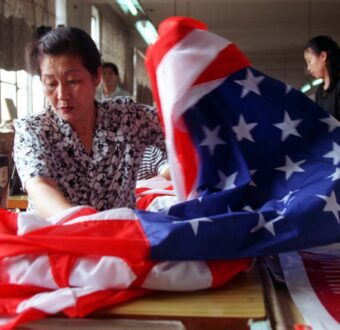’90s Rewind | How Apartheid Ended in South Africa

Nelson Mandela ushered in a stunning transition to democracy
In the 1990s, South Africa ended apartheid, a brutal system of racial segregation, and became a democracy. During the Cold War, the United States supported South Africa’s apartheid government because it was anti-communist. But American civil rights activists pushed Washington to reassess its support – which it did as the Cold War wound down. Nelson Mandela won the first democratic election in 1994 and set out to establish South Africa as a champion of peace and human rights internationally.
In this episode of None Of The Above’s ‘90s Rewind miniseries, the Institute for Global Affairs’ Mark Hannah explores the role the United States played in ending apartheid and how South Africa emerged as a strong voice in the Global South. He is joined by Chris Alden of the London School of Economics and Sean Jacobs of The New School.
Listen Here: Apple Podcasts | Google Play | Libsyn | Radio Public | Soundcloud | Spotify | Stitcher | TuneIn | RSS

Chris Alden is a professor of international relations at the London School of Economics. He is also director of LSE IDEAS and a research associate with the South African Institute of International Affairs. He is the author of numerous books, including South Africa’s Post-Apartheid Foreign Policy and Apartheid’s Last Stand – the Rise and Fall of the South African Security State.

Sean Jacobs is a professor of international affairs at The New School, where he directs the graduate program in international affairs. He is the founder and publisher of the criticism and analysis website Africa is a Country, and the writer of the newsletter Eleven Named People. He is the author of the book Media in Postapartheid South Africa: Postcolonial Politics in the Age of Globalization.
This post is part of None Of The Above, a podcast of IGA hosted by senior fellow Mark Hannah.





